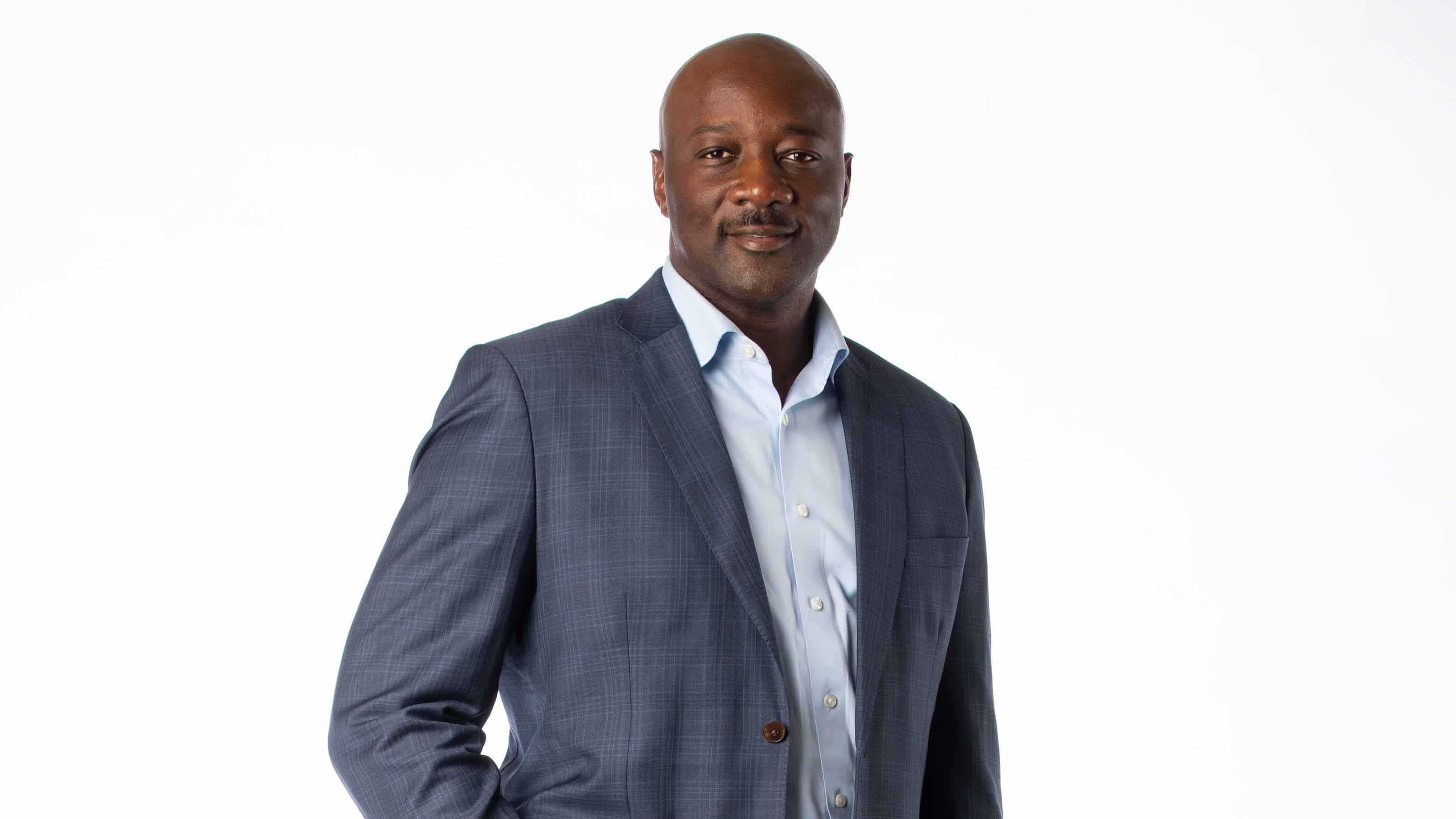Do You Still Need an Emergency Fund as You Get Older?
Most people approaching retirement have a number of resources to tap if they need money.


Profit and prosper with the best of Kiplinger's advice on investing, taxes, retirement, personal finance and much more. Delivered daily. Enter your email in the box and click Sign Me Up.
You are now subscribed
Your newsletter sign-up was successful
Want to add more newsletters?
In January, I started contributing the maximum to my retirement accounts, to the tune of $24,000 a year to my 401(k), including the catch-up contribution for people 50 and older, and $6,500 to my Roth IRA, including the catch-up. With only so much money to go around, I’ve had to skimp on putting money into my emergency fund, which is in a savings account earning squat anyway. But lately, I’ve wondered: Why do I need an emergency fund at all?
The standard advice is that you should have enough cash—preferably in a safe, easy-to-access savings account or money fund—to cover three to six months’ worth of living expenses, plus maybe an extra amount to cover major expenses, such as a new roof.
I don’t have nearly that much in my savings account. What I do have is a hefty sum in my traditional IRA. I’m older than 59½, so if I needed to make a withdrawal I wouldn’t pay a penalty. And because I have to pay taxes on the money whenever I withdraw it, I don’t see why I shouldn’t keep contributing to my 401(k) and let my IRA serve as a backup emergency fund.
From just $107.88 $24.99 for Kiplinger Personal Finance
Become a smarter, better informed investor. Subscribe from just $107.88 $24.99, plus get up to 4 Special Issues

Sign up for Kiplinger’s Free Newsletters
Profit and prosper with the best of expert advice on investing, taxes, retirement, personal finance and more - straight to your e-mail.
Profit and prosper with the best of expert advice - straight to your e-mail.
Not so fast. I ran this idea by members of the National Association of Personal Financial Advisors, and most of the respondents disagreed. Not only would I pay taxes, they pointed out, but the withdrawal could also bump me into a higher tax bracket. Plus, I might have to sell investments in my IRA in a down market. And because of the annual limit on traditional IRA contributions ($6,500 if you’re 50 or older), I might never get back to where I was or want to be.
Okay, what about my Roth? You can always withdraw contributions without taxes or penalty, and if you’re 59½ or older and have held the account for at least five years, you can also withdraw the earnings tax- and penalty-free. No dice, said the planners. Tapping a Roth undermines one of its biggest advantages: You don’t have to take distributions starting at 70½, as you do with traditional IRAs (see 6 Steps to Cutting Your Taxes When You Start Taking RMDs). Better to leave a Roth account intact so you can deploy after-tax money strategically in retirement or let it grow, says Rob Siegmann, of Total Wealth Planning, in Cincinnati.
Other sources. Borrowing from your 401(k), however, can make sense in an emergency, says Jean Fullerton, a certified financial planner in Bedford, N.H., because you won’t take a tax hit on the loan and you’re paying the interest to yourself. Generally, you can borrow as much as half of the amount in your account, up to $50,000. On the downside, you must repay the debt all at once if you lose or leave your job.
Many people my age have one other source of wealth: home equity. A home-equity line of credit (HELOC) from a bank or mortgage lender can be a good option for emergency cash, says Fullerton. If you go the equity-line route, resist the temptation to expand your definition of emergency, she says, and be sure to set up a HELOC before lightning strikes. A reverse mortgage is another way to tap your equity (see Reverse Mortgages Get a Makeover). You can take the cash as a line of credit and use it as needed, and you don’t have to pay it off until you or your heirs sell the house (you have to be at least 62 to qualify).
My take? Most people approaching retirement have a number of resources to tap if they need money. For my part, I have a savings account for garden-variety crises, such as a major car repair, and a home-equity line of credit in case of a disaster, such as losing my job. If the latter were to happen, I’d use the HELOC to fix up my house to sell it, pay off the loan with the proceeds, and buy a cheaper place.
But that’s just me. What’s your plan?
Profit and prosper with the best of Kiplinger's advice on investing, taxes, retirement, personal finance and much more. Delivered daily. Enter your email in the box and click Sign Me Up.

-
 Americans, Even With Higher Incomes, Are Feeling the Squeeze
Americans, Even With Higher Incomes, Are Feeling the SqueezeA 50-year mortgage probably isn’t the answer, but there are other ways to alleviate the continuing sting of high prices
-
 Hiding the Truth From Your Financial Adviser Can Cost You
Hiding the Truth From Your Financial Adviser Can Cost YouHiding assets or debt from a financial adviser damages the relationship as well as your finances. If you're not being fully transparent, it's time to ask why.
-
 How to Manage a Disagreement With Your Financial Adviser
How to Manage a Disagreement With Your Financial AdviserKnowing how to deal with a disagreement can improve both your finances and your relationship with your planner.
-
 Money for Your Kids? Three Ways Trump's ‘Big Beautiful Bill’ Impacts Your Child's Finances
Money for Your Kids? Three Ways Trump's ‘Big Beautiful Bill’ Impacts Your Child's FinancesTax Tips The Trump tax bill could help your child with future education and homebuying costs. Here’s how.
-
 Key 2025 Tax Changes for Parents in Trump's Megabill
Key 2025 Tax Changes for Parents in Trump's MegabillTax Changes Are you a parent? The so-called ‘One Big Beautiful Bill’ (OBBB) impacts several key tax incentives that can affect your family this year and beyond.
-
 ‘I Play Pickleball in Retirement.’ Is It HSA-Eligible?
‘I Play Pickleball in Retirement.’ Is It HSA-Eligible?Retirement Tax Staying active after you retire may be easier with these HSA expenses. But there’s a big catch.
-
 What Does Medicare Not Cover? Eight Things You Should Know
What Does Medicare Not Cover? Eight Things You Should KnowMedicare Part A and Part B leave gaps in your healthcare coverage. But Medicare Advantage has problems, too.
-
 QCD Limit, Rules and How to Lower Your 2026 Taxable Income
QCD Limit, Rules and How to Lower Your 2026 Taxable IncomeTax Breaks A QCD can reduce your tax bill in retirement while meeting charitable giving goals. Here’s how.
-
 How to Benefit From Rising Interest Rates
How to Benefit From Rising Interest RatesFinancial Planning Savers will get the best rates from top-yielding savings and money market deposit accounts at online banks.
-
 Retirees: Cohousing is Growing. Is it Right for You?
Retirees: Cohousing is Growing. Is it Right for You?This model of housing is designed to increase interaction. For some retirees, this is a draw. But you should know the details.
-
 Donor-Advised Funds: The Gift That Keeps on Giving
Donor-Advised Funds: The Gift That Keeps on GivingFinancial Planning Expert guidance on how this charitable vehicle can make a difference.